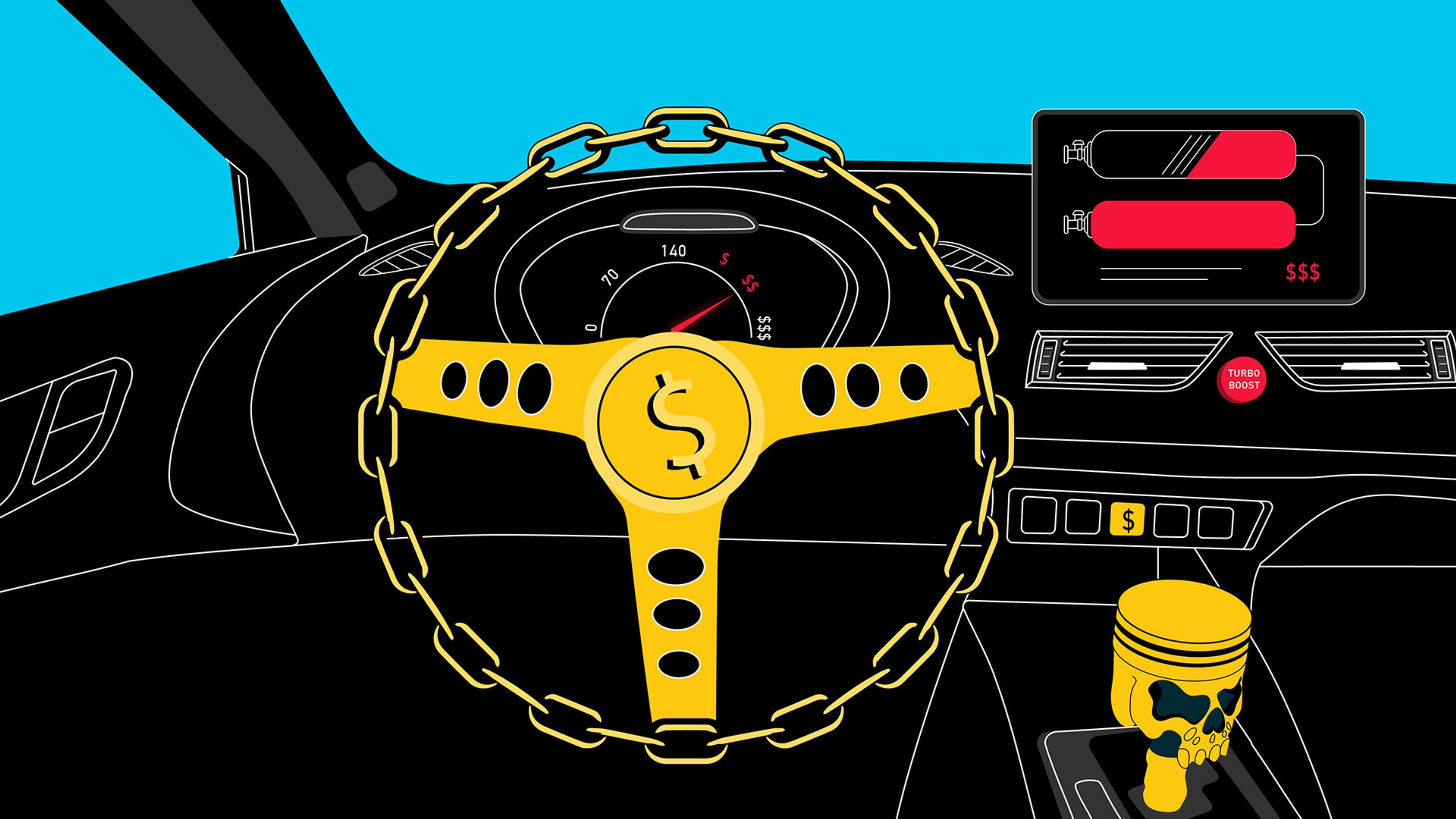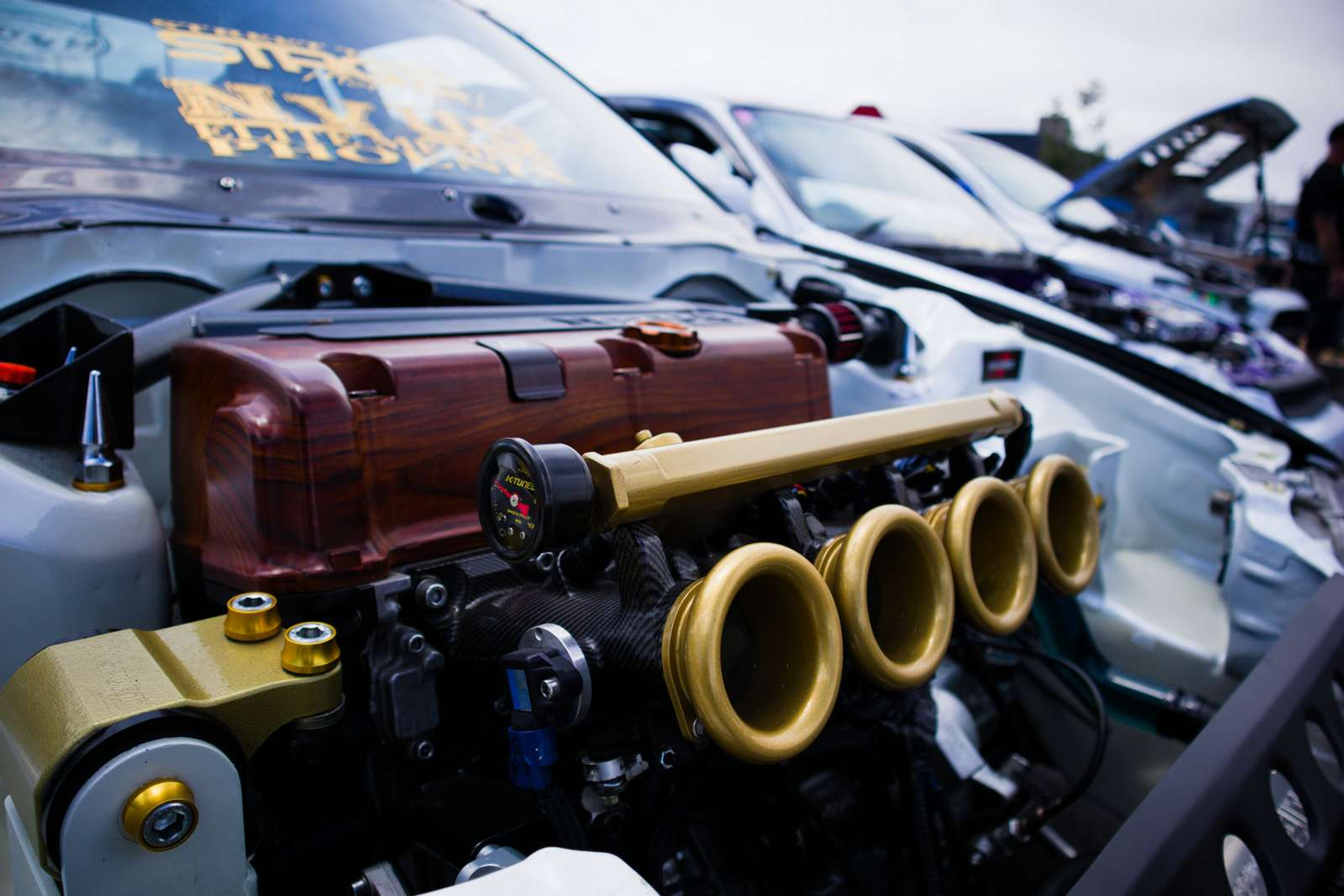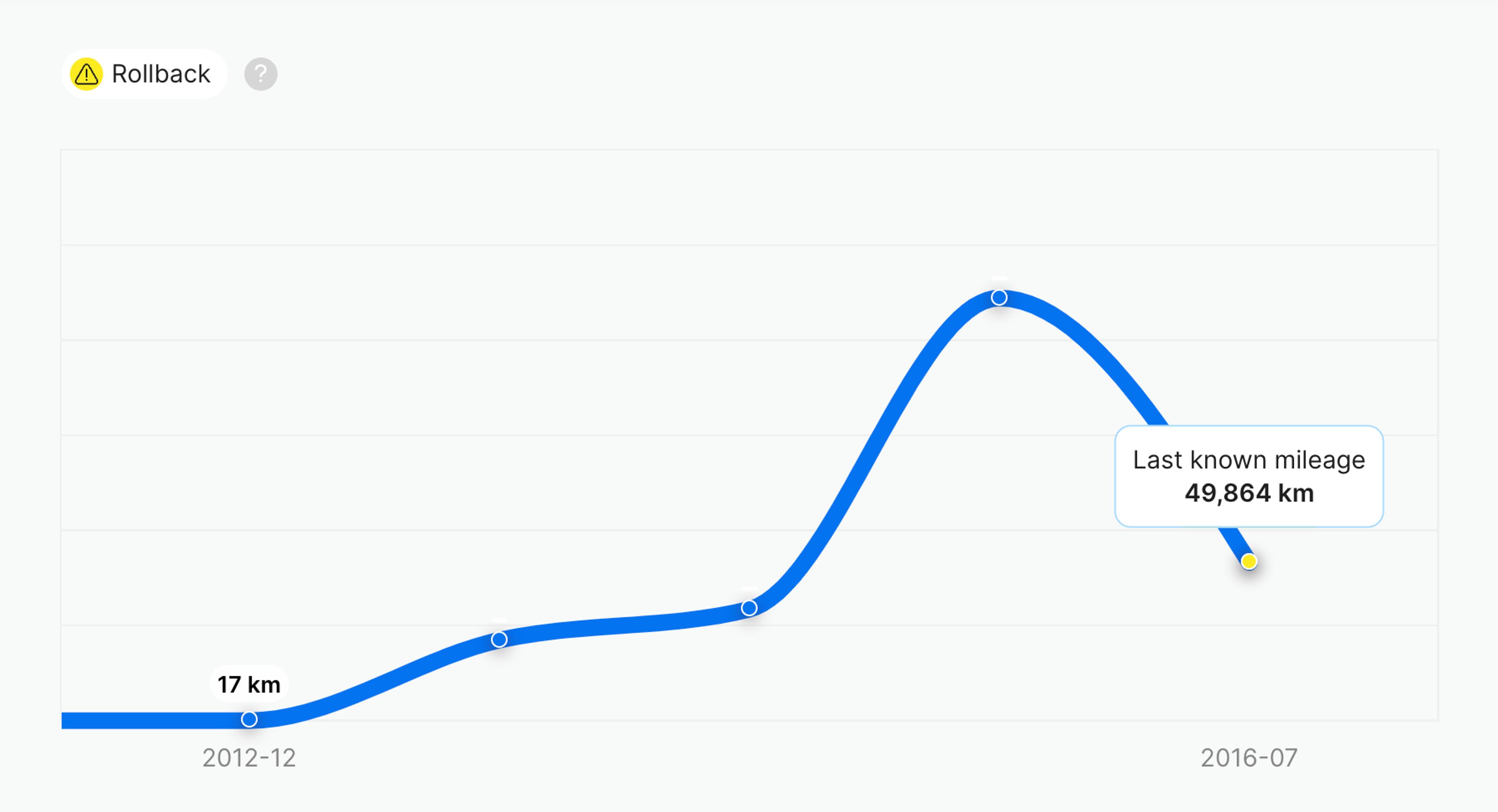
Whether you want to improve your car’s performance or appearance, you can choose from a wide range of possibilities. However, before embarking on any car tuning project, you might want to have a clear understanding of the costs involved.
So, whether you're looking to give your car a simple cosmetic touch-up or a full-blown performance upgrade, prepare to learn how much it actually costs.

Looks can be deceiving!
Don't risk your safety - check it with carVertical first
What is the most expensive car tuning type?

The most expensive car tuning types tend to involve significant modifications to the engine or the body of a vehicle:
- Engine tuning involves upgrading various components, such as the turbocharger, intercooler, and the exhaust system to improve power and efficiency. This type of tuning can cost several thousand dollars.
- Body tuning involves cosmetic and aerodynamic changes to a vehicle's exterior, such as installing new body kits, lowering the suspension, and changing the wheels and tires.
Popular car tuning tasks and how much they cost
Even in the late 1990s, car tuning was an expensive hobby, but advanced electronics have changed traditional car tuning forever, making various mods much more affordable.
ECU remapping expenses
Remapping is a process of improving an engine's performance by reprogramming its engine control unit (ECU). By remapping the ECU, the various engine functions, such as fuel injection, ignition timing, and turbo boost can be optimized for better driving dynamics.
ECU remapping can vary greatly in cost depending on the make and model of a vehicle. On average, ECU remapping can cost anywhere from $300 to $2,000.
Dyno tuning
Dyno tuning involves fine-tuning an engine's settings by measuring its output on a dynamometer and adjusting the air/fuel ratio, ignition timing, and other parameters to achieve optimal performance.
The cost of dyno tuning can vary depending on the dynamometer type and the type of a vehicle being tuned. However, you can expect to pay anywhere from $200 to $1,000 or more for a full dyno tuning session.
Software updates
Vehicle manufacturers typically release car software updates to address known issues and add new features. For example, a software update might fix a bug in the infotainment system that causes it to crash frequently or add new navigation features, such as real-time traffic updates.
It’s possible to perform some car software updates at home by using a USB drive or an OTA (over-the-air) update, while others require a visit to a dealership or a tuning shop.
Changing spark plugs
Changing the spark plugs in a vehicle can positively impact its performance and efficiency. New spark plugs can improve ignition, allowing the engine to run more smoothly and efficiently. This can result in better fuel economy, a more responsive engine, and improved power and acceleration.
Additionally, changing worn or damaged spark plugs can help prevent misfires and other engine problems, ensuring reliable operation. And the cost? For example, the cost of APR Iridium Pro spark plugs starts from $19.95.
Other ECU tuning services
In addition to software updates and ECU remapping, several other engine control unit (ECU) tuning services are available for vehicle owners who want to improve their engines. Some of these services include:
- Installing affordable tuning boxes offer plug-and-play car tuning. By connecting a chip box to your ECU, you can enjoy better performance from your vehicle's engine.
- Custom tuning involves creating a tailored engine map for a car based on the owner's specific goals and preferences.
Car body tuning expenses
Car body tuning involves modifying the appearance and aerodynamics of a vehicle and can include a wide range of modifications, such as body kits, spoilers, diffusers, and more.
PPF or ceramic coating
PPF (paint protection film) and ceramic coating offer a protective layer to help prevent paint damage. Despite these similarities, there are some key differences between the two:
- The self-healing properties of PPF effectively protect a vehicle's paint from scratches and other damage. PPF is typically more durable and provides better protection than ceramic coating, but it can also be more expensive and difficult to apply. The cost of PPF can vary from $2,000 to $7,000 for the entire car.
- Ceramic coating is a clear liquid applied to a vehicle's surface to create a protective barrier against dings and other types of damage. It’s typically easier to apply and less expensive. Applying ceramic coating could cost $600 to $3,000, depending on a vehicle's size.
Lowering

Lowering a vehicle's ride height is usually done to improve handling, appearance, or aerodynamics. However, there's more than one method to do this:
- Replacing the factory springs with lower ones is a common way to reduce chassis height. It's also one of the most simple and inexpensive modifications you can do for your vehicle.
- Coilovers are adjustable suspension components that allow more meticulous control over a vehicle's ride height and suspension setup. They’re typically more expensive than traditional springs but provide greater adjustability.
- Air suspension systems use airbags to support a vehicle's weight and can be adjusted to lower or raise the ride height as needed. Air suspension systems are typically the most expensive option for lowering a car but offer outstanding flexibility.
Some example pricing:
Lowering spring
- Eibach lowering springs for Ford Mustang – $350
- H&R lowering springs for Audi A6 – $399
Coilovers
- Eibach coilovers for BMW 3 series (E90) – $1,616
- KW suspensions coilovers for Tesla Model 3 – $3,249
Air suspension
- Accuair complete air suspension kit for starters – $2,399
- Bag Riders air ride kit – $2,470
Tires and rims
Tires and rims are two important components of a vehicle that can be upgraded for improved handling, appearance, or both. The cost of upgrading these components can vary greatly depending on the type of tires or rims chosen.
Certified car tuning companies can be expensive but worth it
For those who prefer to have their vehicle tuned by professionals, many certified car tuning companies offer a wide range of services. These companies typically have specialized equipment, highly trained technicians, and the expertise needed to perform more complex tuning tasks.
Here are some famous certified tuning companies:
- APR is a well-known tuning company specializing in Volkswagen and Audi vehicles. They offer a wide range of tuning services, including ECU remapping, as well as exhaust system and suspension upgrades.
- Cobb Tuning is a company specializing in Subarus and other high-performance cars. They offer services like ECU remapping, turbo upgrades, and exhaust system modifications.
- Renntech is a tuning company specializing in high-end luxury vehicles, such as Mercedes-Benz, Porsche, and Ferrari. They offer engine and exhaust system tuning, along with suspension upgrades.
- ABT Sportsline specializes in Audi, Volkswagen, and Skoda vehicles and offers engine tuning, suspension upgrades, and body styling modifications.
Depending on the nature of the modification, the price difference between regular garage and certified car tuning specialists could be huge. With that said, using bad specialists can cost more in the long run.
Simple DIY car tuning tasks you can do for free
Everyone can perform several simple car tuning tasks at home with the right tools. Some popular examples include:
- Replacing the air filter can improve the engine's performance and fuel efficiency by allowing more air to enter the engine.
- A cold air intake improves the engine's cooling and boosts its power by allowing more cool, dense air to enter.
- Installing an aftermarket exhaust system reduces back pressure and increases exhaust flow, which allows exhaust gasses to exit more freely and increases engine power.
- Suspension upgrades, such as adding strut braces, can help improve the handling and stability of a vehicle.
Is it worth tuning your car?

Before making any changes, it's vital to consider the purpose of a vehicle. If the main goal is improving a car's handling, dynamics, and overall performance, tuning a car can be a valuable investment.
Car tuning can bring a multitude of benefits to the performance and handling of a vehicle. By making upgrades and fine-tuning various aspects of a car, you can improve power and responsiveness, enhance handling and stability, increase fuel efficiency, and add a touch of personalization. Additionally, a well-tuned car can have a higher resale value than a standard vehicle.
However, car tuning can also be expensive, so it's important to weigh the costs against the potential benefits and determine if it's worth tuning your car. Factors, such as a car's make and model, as well as your budget should be considered and thoroughly calculated.
A car should be in good condition before tuning
Rookie petrolheads are often so mesmerized by tuning options and potentials that they forget how inefficient performance improvements are on shoddy cars. Remember that regular maintenance should be more important than tuning, as it helps to maintain the optimal car’s performance for longer. For instance, sometimes even a fresh engine oil or a new filter can add up to 4-5 horsepower.
However, even properly maintained cars face natural wear and tear – piston rings and cylinder walls leak compression, valves can’t fully close, and the cooling system weakens. As a result, high-mileage tuned cars sometimes perform similarly to low-mileage stock alternatives.

Before investing in any performance upgrades, evaluate the car’s condition and mileage. A car with over 200,000 miles on the odometer probably isn’t worth tuning, unless it’s been maintained perfectly. Moreover, many used cars have fake mileage, so checking a vehicle’s history would be a good idea.
Drivers often think of their cars very well until they see records of severe damages and mileage rollbacks.

Check your registration number
Avoid costly problems by checking a vehicle's history. Get a report instantly!
Frequently asked questions

Article by
Evaldas Zabitis
Evaldas has been writing since middle school and has had a passion for cars for as long as he can remember. Right after getting his driver’s license, he spent all of his savings on shoddy cars so he could spend time fixing, driving, and selling them. Evaldas is always interested in automotive technical innovations and is an active participant in automotive community discussions.
